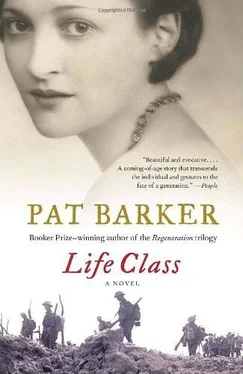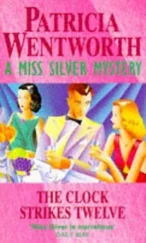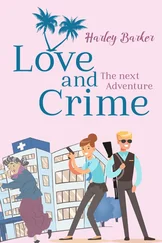‘I’d better get back,’ Lewis said.
‘Yes,’ Paul said. ‘You go.’
Lewis felt for her hand. ‘I’ll see you again.’
She nodded, stammered something and then he was gone, running like a stag down the centre of the road. Paul put his arm around her and they walked back, slowly, to the house. At intervals, the ground shuddered under their feet. The streets were ravines of darkness now, all the lights extinguished, only in the sky was a whirl of sparks flying upwards and an orange glow lighting the underbelly of the clouds.
Another explosion. Paul took her hand. ‘Come on. Not far now.’
As soon as they turned the corner and saw the house they started to run, though running made her more afraid. She stood, gasping for breath, while Paul fitted the key in the lock. The back of his hand was meaty red with the light from the sky. They got inside and switched on the light, but nothing happened.
‘Madame?’ Paul called. They waited but there was no answer. ‘She’ll have gone to her mother’s.’
The walls and floor seemed to be trembling all the time now, not just when a shell landed. They went down to the kitchen. You had to go down a flight of stairs to get to it; once there they looked for another door leading down to the cellar, but the one Elinor tried opened on to a cupboard full of deckchairs and old coats.
‘There’ll be candles,’ Paul said, opening the cupboard under the sink and beginning to rummage about among floorcloths and scrubbing brushes, but he didn’t find any. Elinor opened the curtains and the full moon shone in. Another shell burst, and the rocking chair in the corner started to rock as if to comfort itself. The grinding of its rollers on the stone floor was worse than the bombs and she went across to it and held it still.
‘Under the table,’ Paul said.
‘No, I want my passport.’
‘That can wait.’
‘No it can’t, I want it now.’
‘All right, but you’ll have to be quick.’
Though when they got to the top of the house he was the first to go across and stand at the window. It was far worse than she’d thought. At street level you couldn’t see the extent of the devastation. Up here, the cloth tower was encircled by fires and seemed to float above the city, borne aloft on billowing clouds of smoke.
Because this window was level with the roofs, they could follow the shells as they came in. Three hundred yards away a house burst open, like a ripe pod, as if the pressure came from within. She felt Paul beside her.
‘I ought to go back to the hospital. If it’s hit …’
She didn’t ask him not to leave her, and in the end he didn’t go, though she could feel him disliking her for standing between him and his duty. That’s why it’s called the forbidden zone. That’s why they didn’t want wives and girlfriends here.
She found her passport and money and they crept downstairs again and sheltered under the kitchen table. From time to time the floor shook. Paul built a barricade of chairs intended to protect them from flying glass. At first every explosion made her heart jump, though she made no sound, not because she was brave, but because she’d found out the hard way that her own cries frightened her. It was easier to be stocial, to force her clenched fingers to uncurl. They talked about their childhoods, the good parts, the woods and fields, the excitement of learning to paint, and then he talked more about his mother. The years of her illness when he hadn’t known from day to day which face she would turn towards him.
‘Eventually she stuck a pair of scissors in my neck. That’s when Dad decided we couldn’t manage with her at home any more.’
Through her fear of the repeated shockwaves shaking the table Elinor reached out and took his hand. ‘Make love to me.’ She didn’t know what else to say.
‘I’m not sure I can. I’m frightened too, you know.’
But there was no problem. Afterwards, leaning on Paul’s shoulder, she managed to get some sleep, and woke with a neck so stiff she could barely move. The room was lit with dirty-dishwater light and the shelling seemed to have stopped. They drank cup after cup of hot, strong coffee until her veins buzzed, and then walked out into a street covered with plaster dust, like grey snow. A thin mist of dust hung on the air; they’d walked only a few yards and their heads and shoulders were white. It got into your throat. Paul was coughing really badly. She looked around. Buildings still burned, the flames licking blackened timbers. Some of the house fronts had been ripped off and all the little private things laid bare: wallpaper, counterpanes, chamber pots, sofas, a crucifix hanging askew above a bed, a little girl’s doll. It was indecent. In one living room everything had been smashed except for the china ornaments on the mantelpiece, which sat there, bizarrely untouched. A huge puddle of water lay in a dip in the road where the fire engines had worked all night to damp down the smouldering timbers. As she watched, rings of rain began to pockmark the surface. She saw it in the puddle before she felt it on the back of her neck. It seemed important somehow to notice and remember that. Important and meaningless.
In a daze they began to walk towards the square. In the centre were several bundles covered with rugs or blankets. At first she thought some families bombed out of their homes had rescued their possessions and covered them to keep them dry. She was almost standing over the bundles before she saw the feet sticking out of one covering, a hand out of another. Further on were other people lined up but not yet covered: a woman with a little dog in her arms, three other women, two men, and then, lying on the cobbles, a child. She thought, how strange it was, to lie on the cold ground looking up at the sky with rain falling into your eyes, and not blink or turn your head away.
Paul’s voice in her ear. ‘Come on, now. Come away.’
She hadn’t known she was shaking till he touched her. Now she looked up into his face. His eyelids were crusted with white dust. In the middle of it all, a red, wet mouth making sounds. ‘We’ve got to get you to the station before it starts again.’
‘It mightn’t.’
‘Why would they stop?’
So they ran back along the cratered road. She looked down one of the side streets and saw water from a burst main jetting fifteen, twenty feet into the air and a gang of boys daring each other to run through it. Their dark figures leaping about against the plume of water were full of joy.
She was packed in minutes. They hardly spoke. Paul tried to help, but two people packing one bag doesn’t work so he went and stood with his back to her, staring out of the window. She thought about her mother and father. Until she saw the child lying dead in the square she hadn’t given them a thought. Now she thought of nothing else.
When she’d checked that she’d got everything, she joined Paul by the window. One of the houses that had been hit last night had a green silk bedspread lolling out of its upper window. It looked … sluttish.
‘Well,’ Paul said, turning to face her. ‘That’s that, then. We’d better go.’
Paul carried the suitcase, striding ahead so fast she had to run to keep up with him. The station was packed. Ruthless suddenly, nothing like the man she thought she knew, he elbowed his way through the crowds. They stood near the edge of the platform, looking up and down the line, not knowing when, or if, a train would arrive. Many of the other people looked like refugees, weighed down with as many possessions as they could carry.
‘Write as soon as you can,’ Paul said.
She could see him itching to get back to the hospital. ‘Look, why don’t you go? I’ll be all right.’
‘No, you won’t. This is going to be a real scrum.’
Читать дальше












